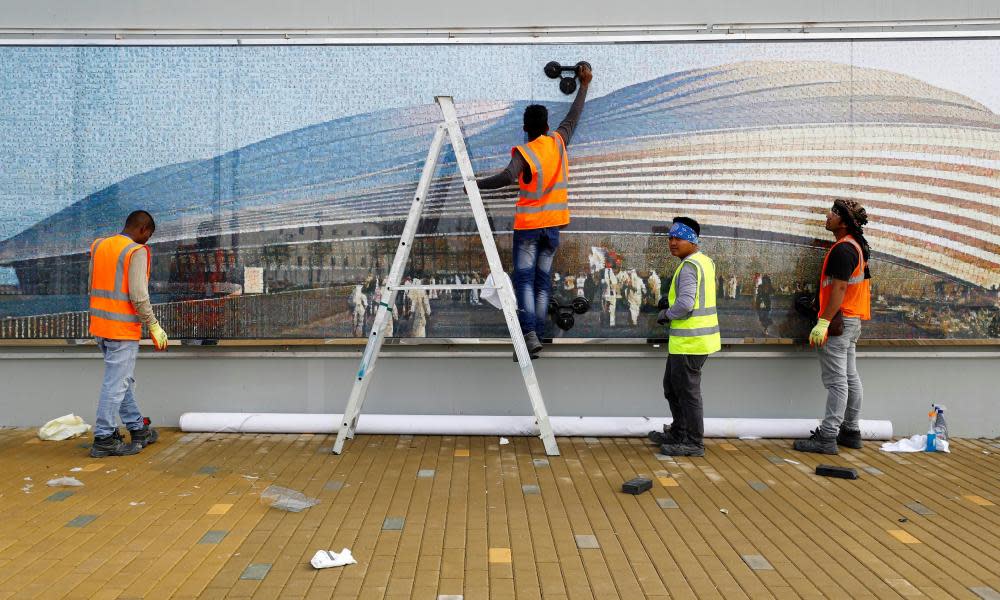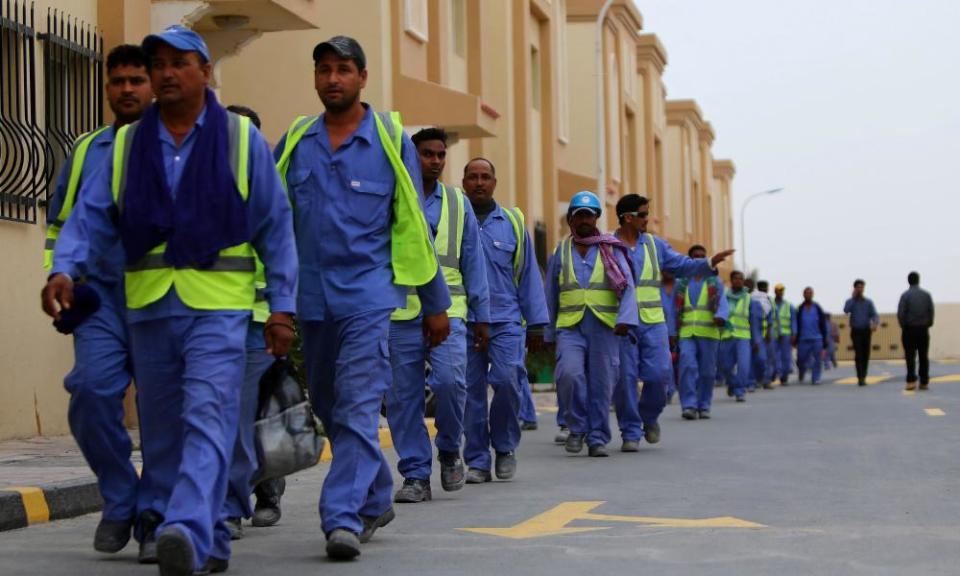Migrant workers in Qatar face ‘structural racism’ says UN report

The United Nations has raised “serious concerns of structural racial discrimination against non-nationals” in World Cup host nation Qatar, in a highly critical report to be presented to the UN human rights council this week.
The report, by the UN’s special rapporteur for racism, Tendayi Achiume, is notable for its uncompromising language, saying a “de facto caste system based on national origin” exists in Qatar, “according to which European, North American, Australian and Arab nationalities systematically enjoy greater human rights protections than South Asian and sub-Saharan African nationalities”.
Around 2 million migrant workers are employed in Qatar; the vast majority low-wage labourers from south Asia and east and west Africa. Roughly 18,500 are currently building World Cup stadiums, but tens of thousands more are employed on projects linked to the World Cup, including in construction, hospitality and security.
Related: Revealed: hundreds of migrant workers dying of heat stress in Qatar each year
The report reveals that low-wage workers continue to suffer severe discrimination and exploitation, almost 10 years after Fifa awarded the World Cup to Qatar. Non-payment of wages, unsafe working conditions, racial profiling by the police and denial of access to some public spaces are among the catalogue of abuses described in the report.
Workers who flee abusive employers are commonly referred to as”‘absconding”. Such a term, “points to the indentured or coercive labour conditions that are the reality for too many low-income workers in Qatar”, the special rapporteur says.
While the report notes some “impressive reforms”, particularly by the committee organising the World Cup in Qatar, it says that “serious challenges remain”. The Qatar government cancelled a visit by the UN special rapporteur on slavery, scheduled for January, soon after the preliminary findings of the report were published.
Related: Qatar's migrant workers beg for food as Covid-19 infections rise
The report will put pressure on Fifa, football’s governing body, to respond, after its president, Gianni Infantino, said in June: “We all must say no to racism and any form of discrimination.”
FairSquare Projects, a human rights group with expertise on migrant workers in the Gulf, has written to Fifa and two of its corporate sponsors, Coca-Cola and Adidas, urging them to speak out publicly on the issue. “Many of the workers being subjected to discriminatory practices in Qatar are there as a direct result of Fifa’s decision to award the tournament to Qatar,” it said.
Nick McGeehan, a director at FairSquare, said: “This report from one of the world’s leading voices on anti-racism makes Qatar a litmus test for Fifa’s anti-racism commitments and raises serious questions for its sponsors. Fifa has both the responsibility and the tools to make a difference here, but to do that we need strong public statements.”
In a statement to the Guardian, Fifa failed to acknowledge the racial discrimination described by the special rapporteur and said the report recognised, “the significant improvements that Qatar has made over the past years, and commends Qatar for its openness in engaging with the UN-mandated experts”.
Fifa said it is working with its partners to ensure, “an inclusive tournament experience for all and a firm stance against discrimination of any kind”.

A central criticism is the continued existence of the kafala, or sponsorship, system, under which workers are unable to change jobs without their employer’s permission. As a result of this, “immense power imbalances persist between employers and migrant workers”, so that “many low-income workers are too afraid to seek justice for labour violations”, the report says.
The Qatari authorities and the UN’s International Labour Organization announced plans to abolish the kafala system and introduce a non-discriminatory minimum wage in October, but neither have yet been implemented. The special rapporteur praised the proposed reforms but, “regrets the delay in their implementation”.
The Qatar government said it had made significant progress on workers’ rights. “Qatar believes in addressing its challenges openly and has readily cooperated with its partners and critics to find practical long-term solutions,” it said in a statement.
“As we prepare to introduce new sweeping labour reforms over the upcoming months, we will continue to adopt an open and inclusive approach to improve the quality of life for all who live in Qatar,” it added.

 Yahoo News
Yahoo News 
